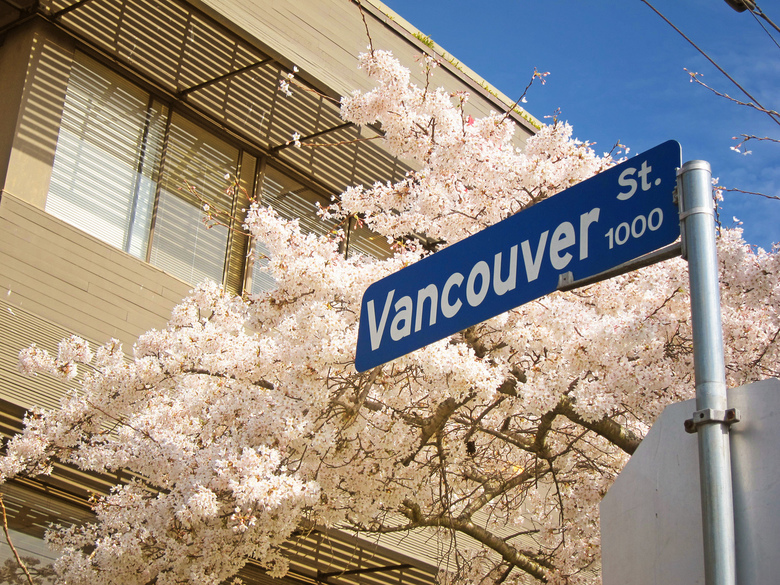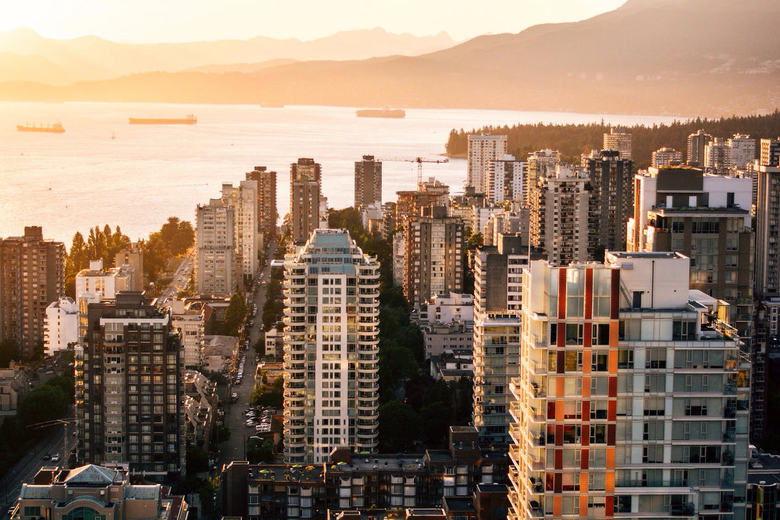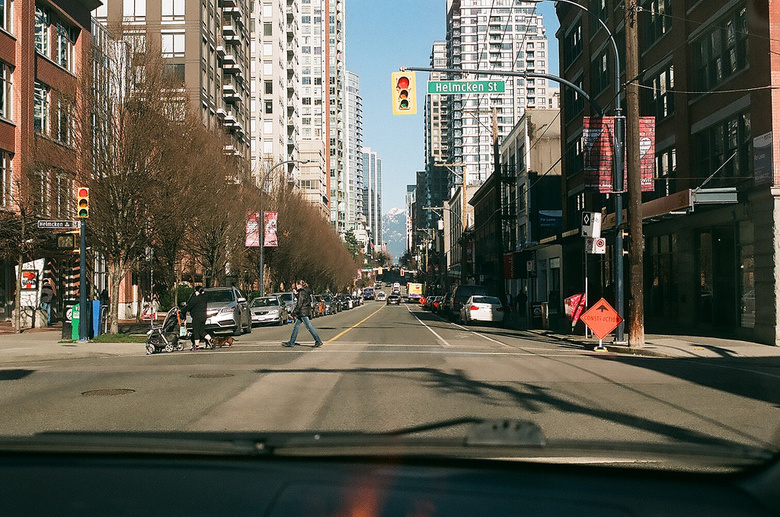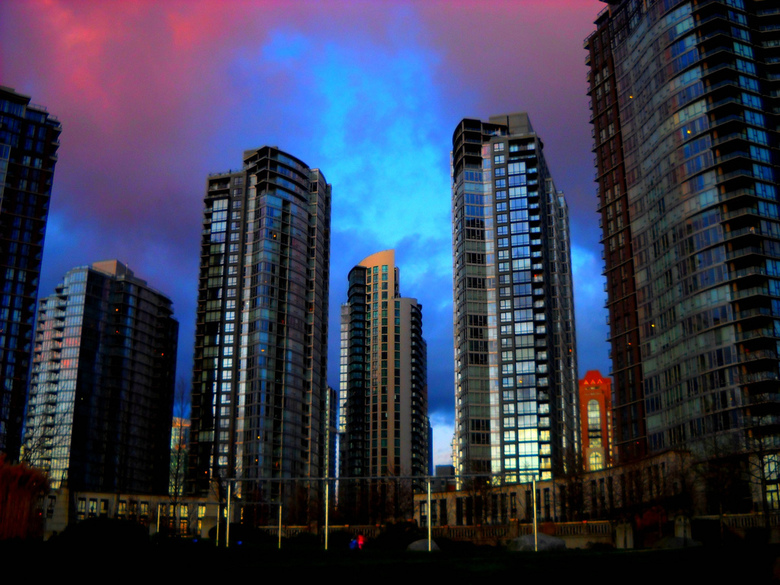Millennials have been adapting to the rising cost of housing in Vancouver by holding off on buying a home and embracing a "coffee shop" lifestyle, experts say.
 Vancouver Street and Blossoms by Nick Kenrick
Vancouver Street and Blossoms by Nick Kenrick
I would say that if someone was looking to be a first time home buyer when they are 23 or 24 then, obviously due to price and due to conditions in Vancouver, that has to be pushed back,
explained Eric Termunde of Gen Y Inc., a multi-generational culture consultant company. "But I am not sure that that is being met with a ton of resistance because the ideal lifestyle now, again generally speaking, seems to be to live downtown and live sort of that apartment lifestyle or that condominium lifestyle until it is time to settle down and get a little bit more serious with family."
Termunde said that there has been a move to a "coffee shop" lifestyle in the younger working generation.
"So the desire to own a 2,000 or 2,500-square-foot house is less appealing because then you are simply isolating yourself in the middle of rural British Columbia," he added.
 Orange Glow by Alex Costin
Orange Glow by Alex Costin
The statistics appear to support what Temunde has been seeing, according to the Canadian Mortgage and Housing Corporation (CMHC), a national organization.
If you look at the level of population for that age group, not looking at the migration numbers but looking at the population numbers, what it shows is that the 25-44 age group actually increased last year in the metro area by about 8,700 people,
said Robyn Adamache, CMHC's Principal for Analysis in Vancouver. She added that there had been a loss of just 1,300 in that age group in 2015.
If you take a look at history, it is actually nothing new in the Vancouver-metro region to have that number of people in that age group leaving. If you look back 10 years a lot of the numbers are larger than that.
Adamache said predictions by B.C. Stats indicated even more growth in the millennial age group explaining that the organization expected 15,000 young workers to move to the Vancouver area. She explained that
overall, the employment picture in Vancouver is stronger than in most places in the province. That would indicate to me that it would draw people to this region and indeed that is what the population numbers are saying as well.
However, although employment may be up, salaries have not kept up with the rising cost of homes.
A report by Vancity found that housing costs rose 63 per cent between 2001 and 2014. Yet salaries rose only 36.2 per cent. A worker would need to earn $78,088 to be able to afford a house in Vancouver.
A similar report showed that millennial households where both adults worked had an average income of $65,492. Such an income would allow the couple to afford a house priced at $384,000. Yet, the report also found that most townhouse-style properties were priced at $511,500.
 Vancouver by Colby Stopa
Vancouver by Colby Stopa
Adamache agreed that some housing would be out of reach for millennials, but said there were other options for the younger generation.
There is no disputing that home prices in Vancouver are higher than other regions in B.C. and other regions in Canada—that is just a fact. However, there is also a very wide range of housing types at different price points that are available to people. So while a young person or most young people certainly cannot afford to buy a detached home on the west side of Vancouver, for example, or maybe even in the City of Vancouver, they may be able to afford to buy a detached home in Port Coquitlam or Maple Ridge or Surrey or they may be afford to buy a condo in Vancouver or in Burnaby or in Coquitlam. So there is a whole range of affordability options out there in the ownership market as well as in the rental market.
In response to the unaffordability of housing in Vancouver, the Government and businesses have been finding ways to ease the stress on the market.
The University of British Columbia, which was named one of the top employers for young Canadians, said they offer rental housing units at reduced rates as well as hundreds of market units.
The Government has also announced an infusion of funds to create thousands of affordable units across the province.
The investment will not only add more units to the market but will also help bring down housing prices for units already on the market, according to the Affordable Housing Society.
The only way to really address the housing affordability problem is to add to the supply of housing because prices go up when there is a limited supply. If there is an oversupply prices go down,
CEP Bob Nicklin said.
It is hard to build rental housing that is affordable unless you have government funding in place to help make the numbers work," he explained. "You are competing in the same marketplace for builders and suppliers and land. So it is very uneconomical unless you have funding from the government to help get the numbers to work to help build rental housing that is affordable.
Nicklin said the Society currently had 3,600 units in the Vancouver area. The Government funding will add over 2,000 in the next five years.
 Vancouver City by Jennifer C
Vancouver City by Jennifer C
Another practical option millennials have been using to live and work in the Vancouver area has been flexible jobs and working remotely.
I will say there would be or there is in many cases opportunities to have a remote day a week or something like that so if someone was commuting in from Langley or from Coquitlam or something like that into Vancouver," Termunde said. "I have seen an increasing number of my peers and a number of people I am working with [who] are doing that. They are finding that to be okay. But there has also been more flexibility in the workplace to allow them to make appropriate adjustments.
Termunde, who recently moved to Vancouver from Alberta, said many were happy to sacrifice something for the quality of life offered in the city.
"I moved from a cheaper spot into something more expensive because I really enjoy the lifestyle in Vancouver. I see that a lot of my peers are making certain sacrifices in order to have a lifestyle that they want or that fits them best. Then making the appropriate adjustments to buy a home later in their life based on whatever their priorities may be.
"Of course, if housing prices were lower would we see a slight change because the option is there? Definitely. But I don’t think that you can generalize a generation to suggest that every millennial would be interested in buying a house if the housing prices were affordable and that could be an option."
CL00DT




There are homes on west side that were $1.3 million 10 years ago and are now $7 million.
I think this generation has different values and priorities, so renting instead of buying is a popular option. The rising costs are unfortunately a different story which can’t be ignored…
The Vancouver “café culture” or eating out frequently due to small living spaces is a VERY expensive and unsustainable “lifestyle”. Plus, at some point, one wants to set roots, put up their feet and relax, have private and family gatherings!
What is building cost like in Vancouver?
How much does it cost to build a decent apartment building and what percentage of income is expected in case of rent or sale. All without any support from the government?